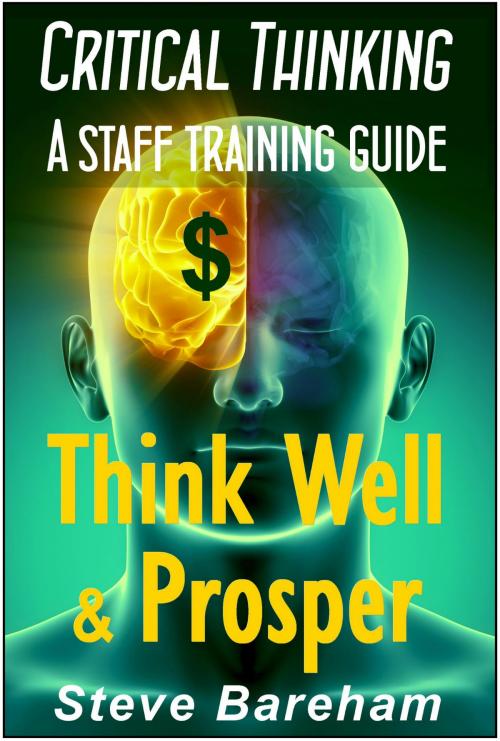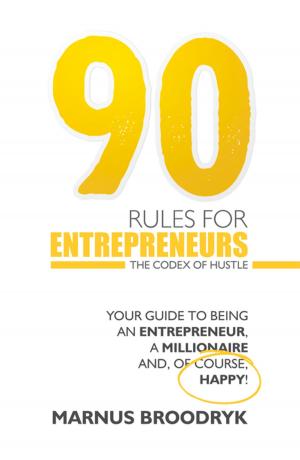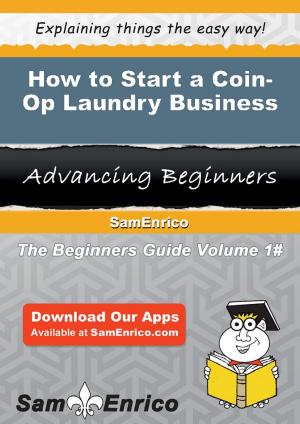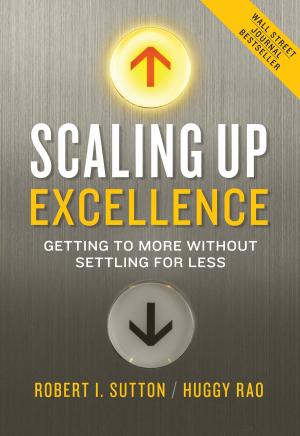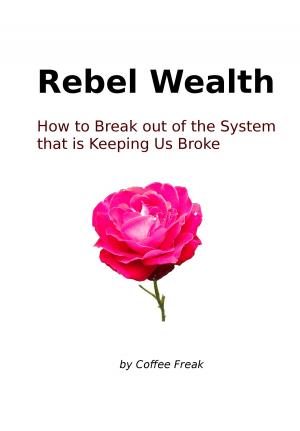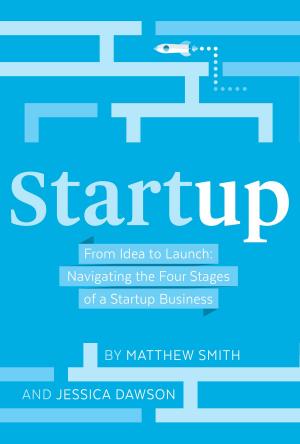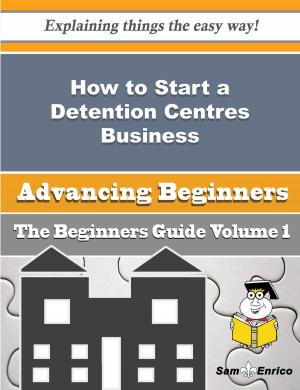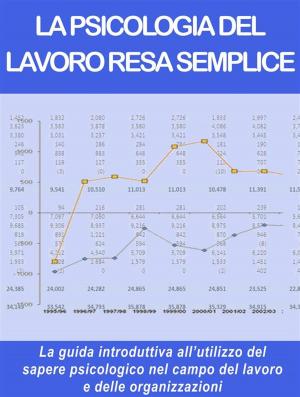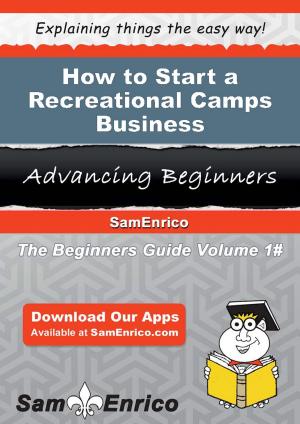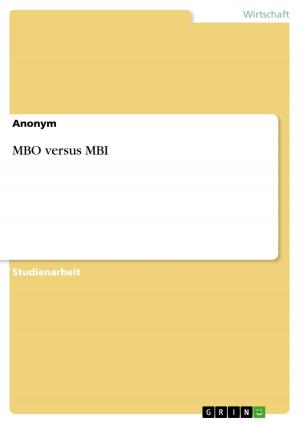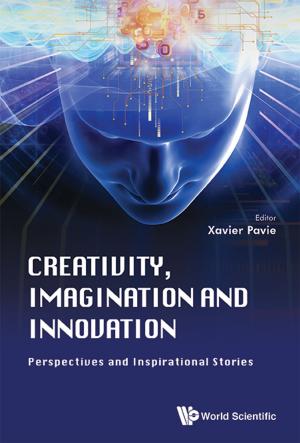Critical Thinking: A Staff Training Guide
Think Well & Prosper
Business & Finance, Human Resources & Personnel Management, Training, Skills, Entrepreneurship & Small Business| Author: | Steve Bareham | ISBN: | 9780991680634 |
| Publisher: | Summa Publishing | Publication: | May 19, 2013 |
| Imprint: | Language: | English |
| Author: | Steve Bareham |
| ISBN: | 9780991680634 |
| Publisher: | Summa Publishing |
| Publication: | May 19, 2013 |
| Imprint: | |
| Language: | English |
MUST READ FOR MANAGERS: Thinking well is important in all aspects of life, but tackling it explicitly is often overlooked in work-world training programs. Never have thinking skills been more important than now, in the 3rd Millennium, when companies worldwide competE for a competitive edge. Nowhere do you get more bang for your buck than in staff training that boosts people's abilities in the areas of analysis, reasoning, decision making, problem solving, creativity, and planning. Also see the companion book Think Well & Prosper: A Critical Thinking Guide, designed for individual use, also available on Amazon.
There are specific steps and processes involved in critical thinking, also known as higher order thinking skills (HOTs); articulating those processes, and making the case for staff training in the area, is what this book is about; you get info and direct links to dozens of specific problem solving and decision making processes that you can use and share with staff members. The book explores the impact of HOT skills training to improve profits, productivity, and staff morale. It also produces evidence that critical thinking skills are often present in managers, but not widely among rank-and-file staff. People who think critically often assume that everyone else knows how to as well, and are often disappointed when it becomes evident that others don't have the same knowledge or skills. This explains some of the miscommunication, misunderstanding, mistakes, and even distrust between management and rank-and-file.
People who think critically think productively. When faced with complex decisions or problems, they reframe to examine the issue from all angles in a search for optimal solutions based on "now," not the past. Critical thinkers conduct exhaustive research when warranted; they benefit from others' knowledge and then adapt and evolve to the unique situation. This is productive thinking and it generates superior results compared to reproductive thinking which relies only on existing knowledge and past experiences. Critical thinkers are constantly learning.
Few people understand that good thinking follows an algorithm. Instead, energy is directed in a rush toward outcomes -- to decisions, plans, conclusions, and judgments. This, in a nutshell, is the problem. When people hurry thinking because they don't know what they don't know, the fixation on decisions, plans, conclusions, and judgments means they move directly to the latter stages of thinking; they force answers without asking all the right questions. This is backwards thinking and responsible, in large part, for results that are rarely optimal.
Thinking weaknesses are also attributable to the fact that thinking skills aren't taught explicitly in most schools. Explicit means to do something deliberately so there is no doubt as to intent:
Explicit: "...fully revealed or expressed; without vagueness, implication, or ambiguity; no question as to intent." Incredibly, our schools teach all subjects explicitly (math, English, even physical education), but thinking skills are left to be acquired implicitly, meaning they are expected to be picked up secondarily as a result of other studies.
Implicit means: "...capable of being understood from something else, though unexpressed; implied, vague..." Thinking skills are rarely picked up implicitly so we have tens of millions of people who literally don't know what they don't know.
Thinking well is a skill like any other that must be learned and practiced. Once the skills are used routinely, remarkable things happen as examples, videos, and articles found in the book reveal. If you're a manager looking for a new challenge, tackling how your staff thinks is one that is very worthwhile. Not only can broadening the intellectual brain resource help your organization, it can positively change people's lives in every other area as well.
MUST READ FOR MANAGERS: Thinking well is important in all aspects of life, but tackling it explicitly is often overlooked in work-world training programs. Never have thinking skills been more important than now, in the 3rd Millennium, when companies worldwide competE for a competitive edge. Nowhere do you get more bang for your buck than in staff training that boosts people's abilities in the areas of analysis, reasoning, decision making, problem solving, creativity, and planning. Also see the companion book Think Well & Prosper: A Critical Thinking Guide, designed for individual use, also available on Amazon.
There are specific steps and processes involved in critical thinking, also known as higher order thinking skills (HOTs); articulating those processes, and making the case for staff training in the area, is what this book is about; you get info and direct links to dozens of specific problem solving and decision making processes that you can use and share with staff members. The book explores the impact of HOT skills training to improve profits, productivity, and staff morale. It also produces evidence that critical thinking skills are often present in managers, but not widely among rank-and-file staff. People who think critically often assume that everyone else knows how to as well, and are often disappointed when it becomes evident that others don't have the same knowledge or skills. This explains some of the miscommunication, misunderstanding, mistakes, and even distrust between management and rank-and-file.
People who think critically think productively. When faced with complex decisions or problems, they reframe to examine the issue from all angles in a search for optimal solutions based on "now," not the past. Critical thinkers conduct exhaustive research when warranted; they benefit from others' knowledge and then adapt and evolve to the unique situation. This is productive thinking and it generates superior results compared to reproductive thinking which relies only on existing knowledge and past experiences. Critical thinkers are constantly learning.
Few people understand that good thinking follows an algorithm. Instead, energy is directed in a rush toward outcomes -- to decisions, plans, conclusions, and judgments. This, in a nutshell, is the problem. When people hurry thinking because they don't know what they don't know, the fixation on decisions, plans, conclusions, and judgments means they move directly to the latter stages of thinking; they force answers without asking all the right questions. This is backwards thinking and responsible, in large part, for results that are rarely optimal.
Thinking weaknesses are also attributable to the fact that thinking skills aren't taught explicitly in most schools. Explicit means to do something deliberately so there is no doubt as to intent:
Explicit: "...fully revealed or expressed; without vagueness, implication, or ambiguity; no question as to intent." Incredibly, our schools teach all subjects explicitly (math, English, even physical education), but thinking skills are left to be acquired implicitly, meaning they are expected to be picked up secondarily as a result of other studies.
Implicit means: "...capable of being understood from something else, though unexpressed; implied, vague..." Thinking skills are rarely picked up implicitly so we have tens of millions of people who literally don't know what they don't know.
Thinking well is a skill like any other that must be learned and practiced. Once the skills are used routinely, remarkable things happen as examples, videos, and articles found in the book reveal. If you're a manager looking for a new challenge, tackling how your staff thinks is one that is very worthwhile. Not only can broadening the intellectual brain resource help your organization, it can positively change people's lives in every other area as well.
